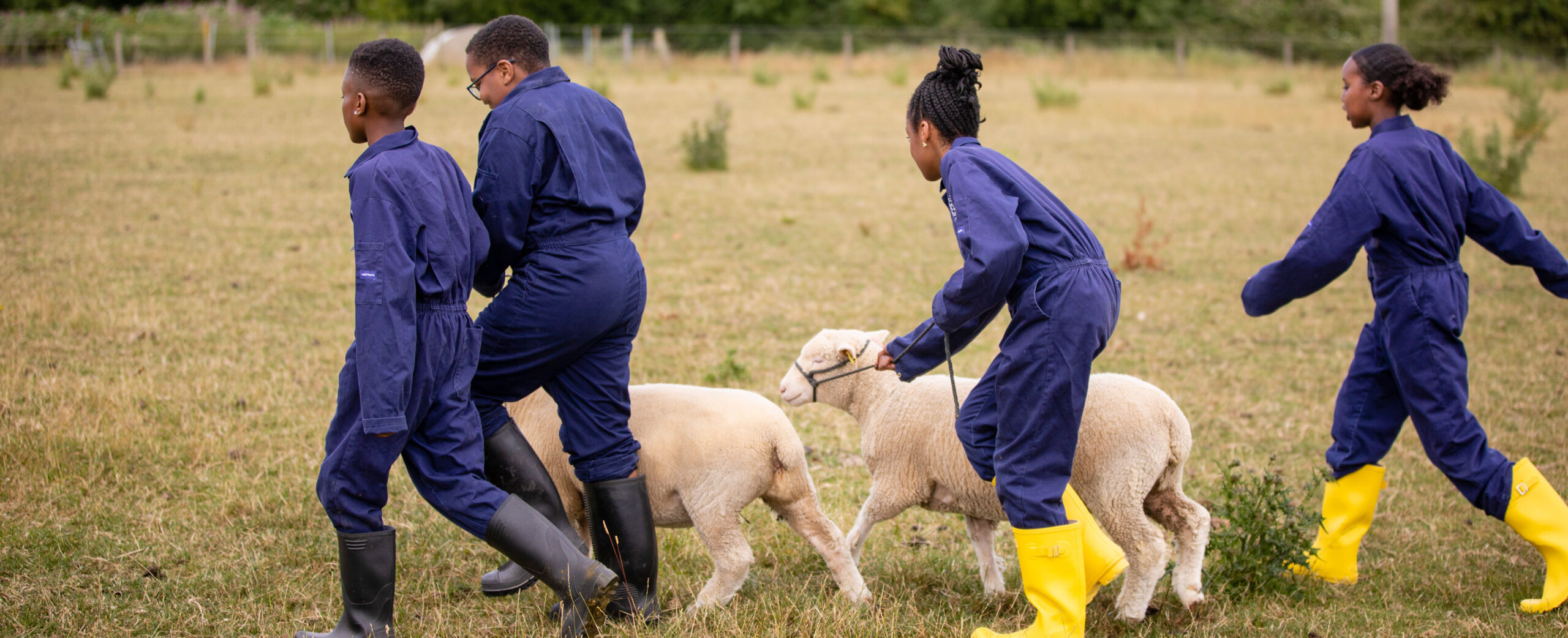Lower Treginnis is our coastal farm with panoramic horizon views of the land and ocean.
Who can visit our farms?
We provide five-day farm residentials for children and young people between the ages of 8-19 from maintained schools and community groups. We particularly welcome those from underserved communities across England and Wales.
The farms are bustling with activity throughout the year and we offer school visits in term time and community group visits in non-term weeks. We can accommodate up to 39 children and six accompanying adults, with each group having exclusive use of the farm throughout your stay.
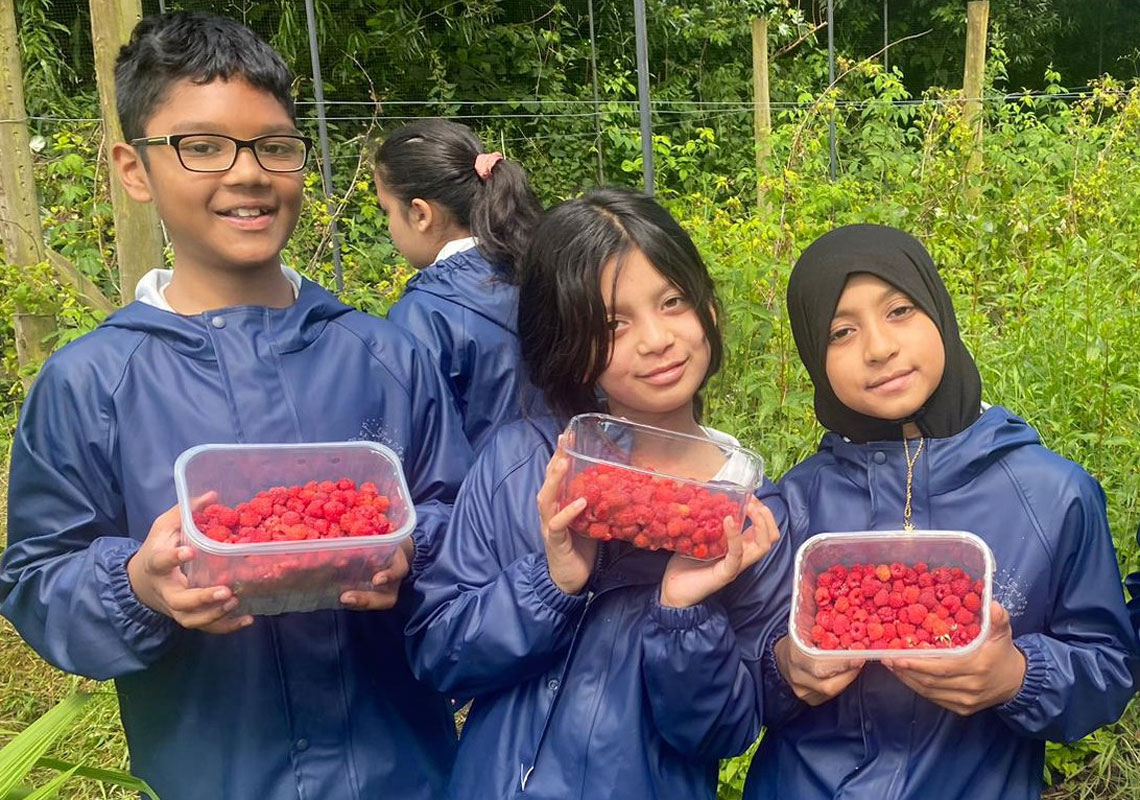
What to expect
Days are just packed on our farms! Our five-day residentials offer an immersive outdoor learning experience, full of hands-on tasks. Physical activity, nature-connection and nutritious food combine to nurture children and boost their wellbeing.
Our young farmers learn about climate, sustainability and themselves during their time with us. Through trying new tasks and working together, they grow their skills, confidence and connections with one another.
-
Hands-on farm tasks including tending to our animals.
-
Nature connection through walks, birdwatching and beekeeping.
-
Practical ‘farm to fork’ learning through gardening and cooking.
-
First-hand experience of sustainable farming practices.
-
Delicious farm-cooked meals, made with our own produce.
-
Natural crafts, woodland activities and outdoor free play.
-
Comfortable dormitories, cosy lounges and peaceful libraries.
-
Screen-free environment with lots of analogue adventures!
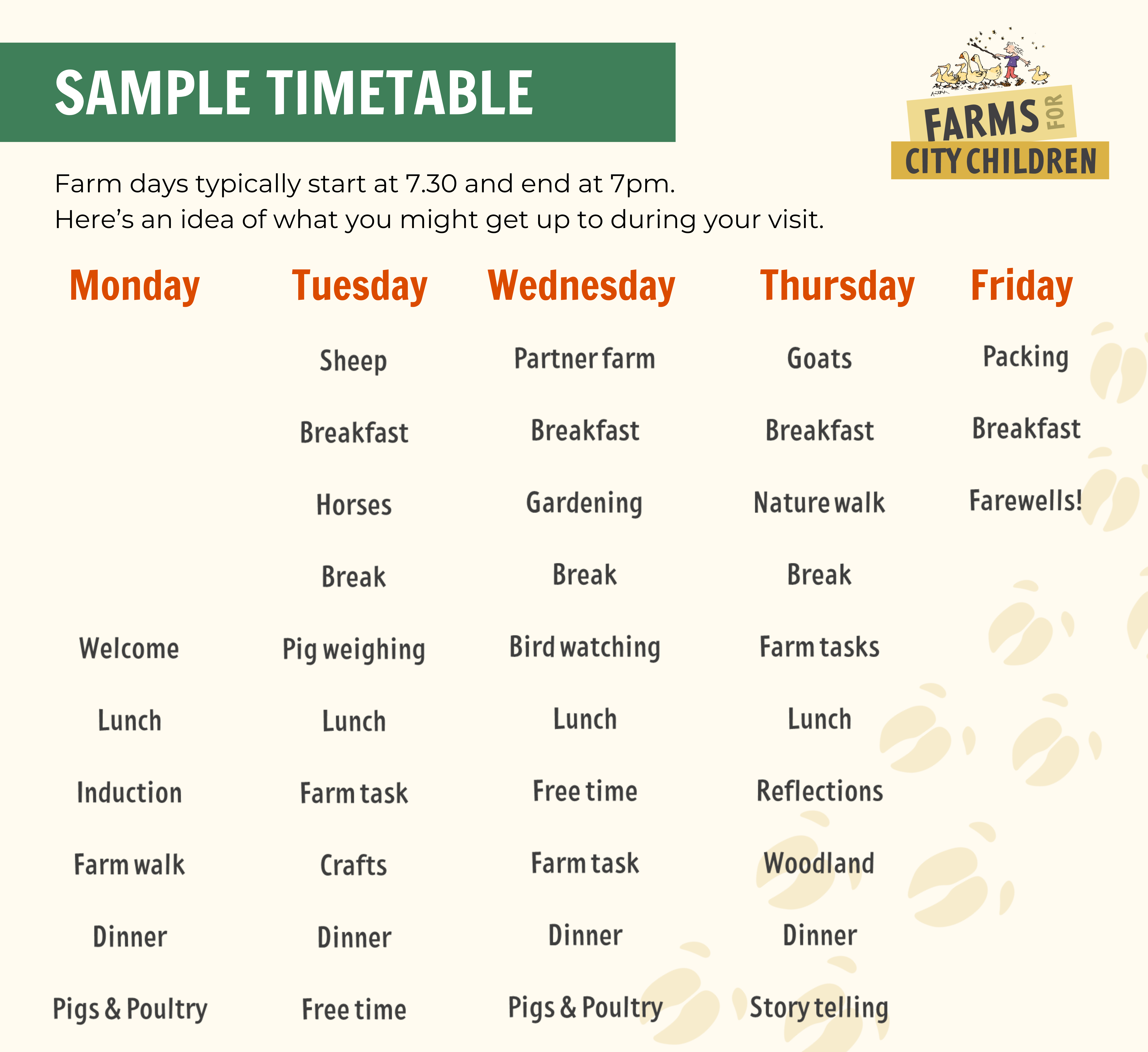
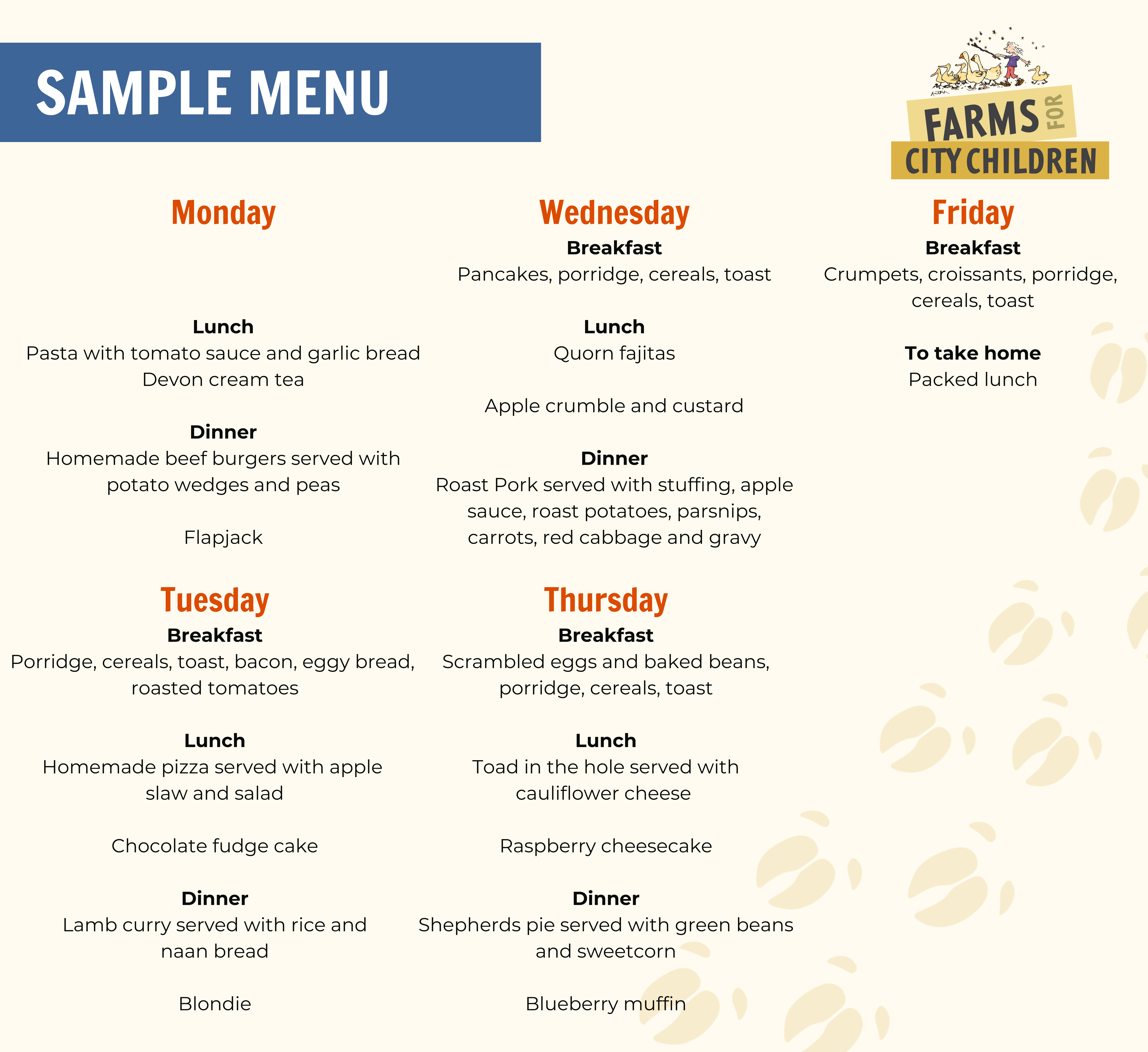
Benefits of a visit
Put simply, our aim is to grow children and young people. To do this, we pledge to deliver three outcomes from a week’s residential on one of our farms.
Firstly, to increase children and young people’s learning and engagement. Secondly, to improve their wellbeing and connections with those around them. Thirdly, we pledge that young people leave us with an enhanced sense of environmental citizenship and the role they play in protecting our planet.
Our farms
-
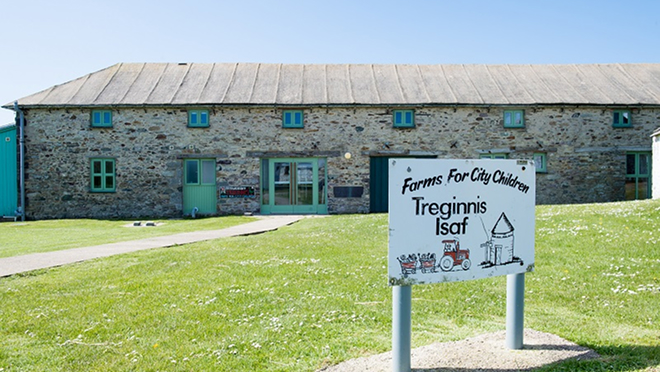 Lower Treginnis - Pembrokeshire
Lower Treginnis - Pembrokeshire -
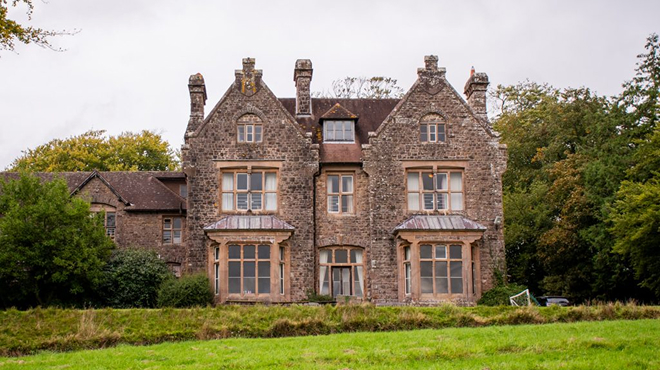 Nethercott House - Devon
Nethercott House - DevonOur first farm, Nethercott House sits overlooking the Dartmoor National Park deep in a stunning rural location.
-
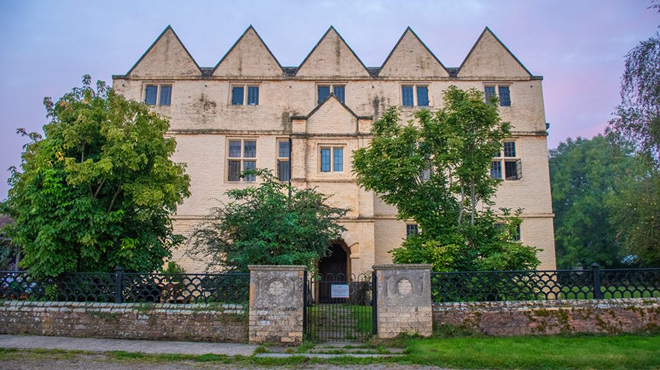 Wick Court - Gloucestershire
Wick Court - GloucestershireWick Court is our moated farm, a haven for wildlife with views over idyllic farmland to the River Severn.
Information and bookings
For more information, to check availability or to book, please call
01392 276381 or complete the form below and we’ll get back to you.
Questions and answers
Every visiting group must be accompanied by suitably qualified and experienced adults who will be in loco parentis throughout. We ask that the same adults remain onsite for the duration of your visit for health and safety reasons.
As a minimum, all groups need to bring one adult for every 13 children, plus at least one additional adult who is present throughout the visit. We can host up to five accompanying adults.
Farms for City Children works hard to fundraise to subsidise just over 50% of the real cost of a visit to the farm. This means that schools and groups pay a reduced rate, which is fully inclusive and all visitors enjoy exclusive use of the farms and all facilities. If your school or group serves communities facing particular hardship, it may also be possible to tailor the payment schedule to help meet your needs.
Please contact our bookings team to get a full costing for your visit.
The cost of the week is fully inclusive of all accommodation, food, staffing, resources, PPE and programme activities. It includes the cost of five teacher places and exclusive use of the farm.
The school or community group arranges its own transport to and from the farm sites.
We cater for all dietary requirements so everyone can enjoy their farm visit and stay well fuelled. Our programme can be adapted to include prayer times and accommodate cultural needs. We can provide photos, videos and online calls in advance of your visits so you can help children familiarise themselves with our farms.
The environment on our farms is low-pressure, with small group sizes and safe breakout spaces available.
For health and safety reasons, there are some children that we are not able to accommodate safely on our farms, but we will work with you to provide the most inclusive environment we can.
We have a detailed safeguarding policy and procedure in place for each of our three farms:

